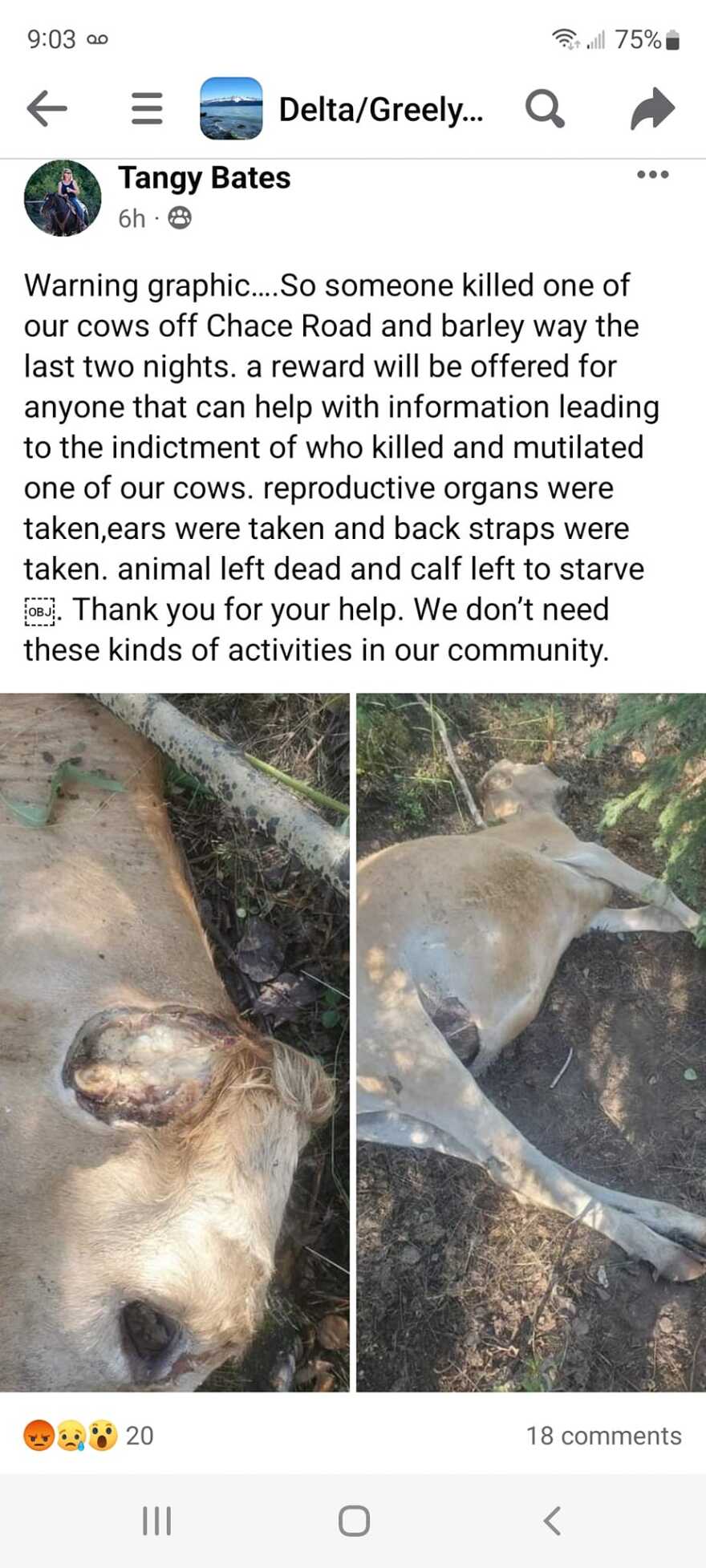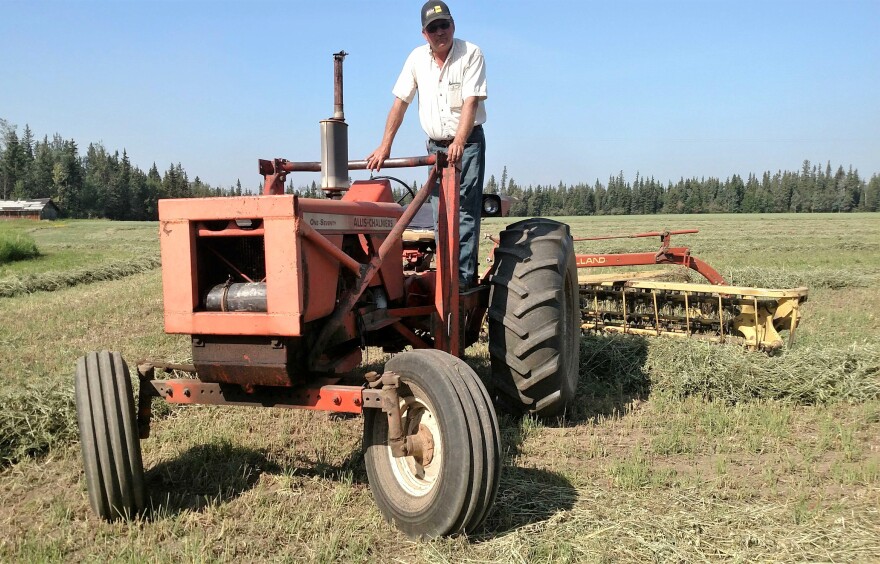Ranchers offer $2,500 reward for leads about killings
Alaska State Troopers are investigating the killing and mutilation of a cow near Delta Junction. The rancher who owned the animal is offering a $2,500 reward for information about its death and the disappearance of two other cows over the past week.
Tangy Bates and her husband, Matt, own 300 head of cattle. And because there’s not enough pasture at their ranch, they keep most of their beef cows at other farmers’ fields. But all that changed this week, when kids next door to one of those farmers found a dead cow.

“It was a couple of 8-year-old girls that found it. They were out playing,” Tangy Bates said Thursday.
Bates said the girls found the cow Wednesday in the woods that surround the field, where she and her husband kept about a hundred of their cows. She says last week they’d found the carcasses of two other cows that had gone missing, and they weren’t sure of their cause of death either.
But the third cow, a lactating female, had clearly been killed and mutilated.
“They had cut her ears off, cut her udder off, her reproduction organs, cut her eyes out, backstraps out,” she said. The backstraps are , two long pieces of meat cuts from the back of an animal along the spine.
Bates says they’ve removed most of the cows from that field. She said it appears the mutilated cow was killed within the past five days or so.
She says some people have suggested it was killed by a predator, like a bear. But she disagrees, because the incisions clearly were made with a sharp edge.
“We have a butcher shop,” she said. “We know the difference.”
Bates and her husband have been operating Blue Creek Livestock/Alaska Natural Foods, their farm and ranch in Delta, for about six years, and she’s never heard about any cattle mutilations in the area during that time. Nor has Scott Mugrage, another Delta rancher who’s also president of the Alaska Farm Bureau.
“I haven’t run into such a thing,” he said in an interview Thursday.
An Alaska State Troopers spokesperson said in an email this morning that there have been incidents involving cattle mutilation in the Lower 48, but not in Alaska. The spokesperson added there was an incident last year in which someone shot at a couple of cows with a high-powered rifle.
Mugrage said he also is perplexed by the recent rash of cow killings. But, he added, the fact that the rustler(s) cut out the backstraps leads him to suspect the cows were killed for food by someone who can’t afford to buy it at the grocery store.

“Meat, groceries are getting pretty doggone high,” he said, “and you’re probably going to see more instances of something like this.”
But the high cost of beef also means that Bates and her husband will have to pay up to $2,500 to replace each cow. And that doesn’t include the loss of revenue they would’ve gotten from the sale of calves the cows would’ve produced.
“The short-term value is 25-hundred,” she said. “But the long-term value of that animal is, I’m losing out on thousands of dollars.”
Troopers are investigating the cow killing, and that’s about all a spokesperson could say about it Wednesday afternoon. The Trooper spokesperson said in the Friday email that “if there is a suspect identified and can be charged, charges could include felony criminal mischief and possible animal cruelty. However, facts gathered in the investigation are ultimately what would lead to any charges being filed.”
Bates says she and her husband have sent tissue samples from the three cows to a lab in Washington state for necropsy, in hopes that might shed some light on the case. But she, too, has her suspicions, based on what she’s encountered during a lifetime of ranching.
“I originally come from Idaho,” she said, “and we’ve seen this before where you have cults that have come through and do cattle mutilations and take reproductive organs, eyeballs …”
Bates says she’s just speculating about that. Meanwhile, she and her husband have been spreading the word around the local agricultural community about the suspected cattle killings. And fellow farmers and ranchers have been donating money for a $2,500 reward the Bateses are offering for information leading to the conviction of the suspected rustlers.
Editor's note: This story has been revised with additional details from Alaska State Troopers.



